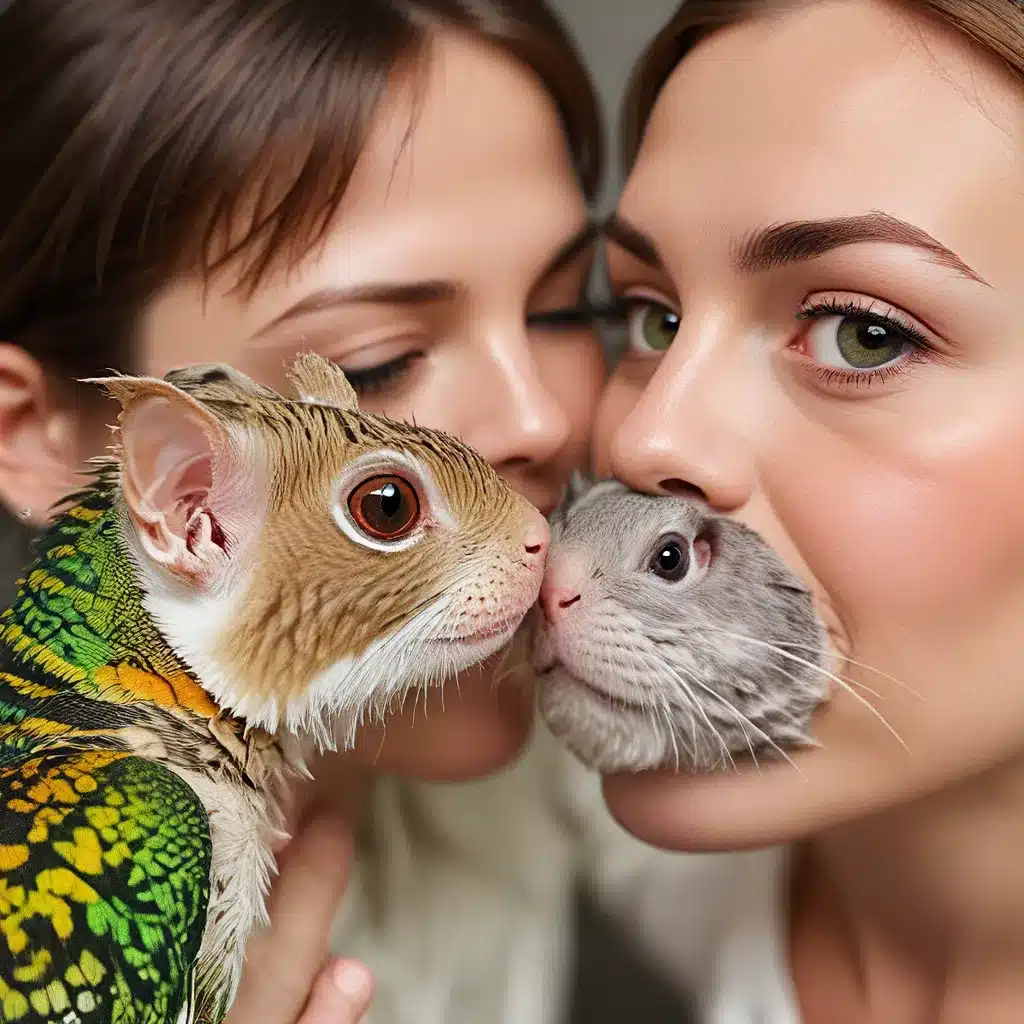
The Allure of the Uncommon
Exotic pets have a certain je ne sais quoi, don’t they? There’s just something captivating about bringing home an animal that isn’t your typical furry friend. Whether it’s the sleek and slinky appeal of a snake, the mesmerizing movements of a lizard, or the whimsical wonder of a feathered companion, exotic pets seem to offer a glimpse into a world beyond the ordinary.
But this allure comes with its fair share of challenges. Navigating the world of exotic pet parenthood requires a unique blend of research, preparation, and adaptability. It’s not as simple as swinging by the local pet store and picking up the first critter that catches your eye. Exotic animals have very specific care requirements, from the size of their enclosures to the intricate details of their diet.
Diving into this realm without the proper knowledge can lead to heartbreak for both you and your new scaly, feathered, or slimy friend. That’s why it’s crucial to approach exotic pet ownership with a healthy dose of caution and a willingness to learn.
Doing Your Homework: The Key to Successful Exotic Pet Ownership
Before you bring home your first exotic pet, it’s essential to do your due diligence. This isn’t the time to wing it or rely on hearsay. Exotic animals have unique needs that can vary significantly from their more common counterparts. Failing to meet these needs can result in a host of issues, from health problems to behavioral challenges.
Start by researching the specific species you’re interested in. Learn about their natural habitat, dietary requirements, and any special considerations for their care. This information will be your roadmap to providing a safe, comfortable, and enriching environment for your new pet.
But the research doesn’t stop there. You’ll also need to familiarize yourself with any local laws or regulations surrounding exotic pet ownership. Some species may be restricted or require special permits, and it’s crucial to ensure you’re in compliance. Ignorance of the law is no excuse, and the last thing you want is to face hefty fines or the heartbreak of having your pet confiscated.
Once you’ve done your homework and feel confident in your ability to meet the needs of your desired exotic pet, it’s time to start preparing. This may involve acquiring the right enclosure, setting up a temperature-controlled environment, or sourcing specialized food. It’s a good idea to have all of these elements in place before you bring your new friend home, ensuring a smooth and stress-free transition.
Embracing the Unexpected: Adapting to Your Exotic Pet’s Unique Needs
Even with the best preparation, exotic pet ownership is not for the faint of heart. These animals often have complex behaviors and intricate care requirements that can throw a curveball your way. Be prepared to think on your feet and adjust your approach as needed.
For example, a bearded dragon might decide it’s no longer interested in the perfectly balanced diet you’ve been providing. Or a parrot might develop a sudden aversion to having its wings trimmed. These unexpected challenges can be daunting, but with a little creativity and a willingness to learn, you can overcome them.
Networking with other exotic pet enthusiasts can be invaluable in these situations. Joining online forums, attending local meetups, or even consulting with a specialized veterinarian can provide you with a wealth of knowledge and support. Don’t be afraid to ask questions and seek advice from those who have been in your shoes.
Fostering a Harmonious Home: Helping Your Exotic Pet Thrive
Once you’ve navigated the initial hurdles of exotic pet ownership, the real rewarding work begins. It’s time to focus on creating an environment that not only meets your pet’s physical needs but also supports their emotional well-being.
This may involve providing enrichment activities, such as hiding food in their enclosure or introducing new toys. Exotic animals are often highly intelligent and can become easily bored or stressed without adequate stimulation. By keeping them engaged and mentally stimulated, you’ll help prevent behavioral issues and ensure your pet remains happy and healthy.
It’s also crucial to consider the social needs of your exotic pet. Some species are naturally solitary, while others thrive in the company of their own kind. Understanding these dynamics and providing appropriate social interactions (or lack thereof) can make a world of difference in your pet’s quality of life.
And let’s not forget the importance of regular veterinary check-ups. Exotic animals often have very specific health concerns, and it’s essential to work with a vet who specializes in their care. This will ensure your pet receives the specialized attention they need to prevent and address any issues that may arise.
The Rewards of Exotic Pet Parenthood
Despite the challenges, the rewards of exotic pet ownership can be truly remarkable. These animals offer a window into a world that is vastly different from our own, and sharing that world with them can be a profoundly enriching experience.
Whether it’s the mesmerizing grace of a snake in motion or the playful antics of a parrot, exotic pets have a way of captivating our hearts and minds. They push us to think outside the box, to be more adaptable, and to appreciate the incredible diversity of the natural world.
And let’s not forget the sheer thrill of witnessing your exotic pet’s milestones and achievements. Watching a timid lizard come out of its shell, or witnessing the first successful molt of a tarantula, can be moments of pure joy and wonder.
So if you’re willing to put in the time, effort, and dedication required, the world of exotic pet ownership can be a truly rewarding and enriching experience. Just remember to approach it with an open mind, a willingness to learn, and a deep respect for the unique needs of these extraordinary companions.

